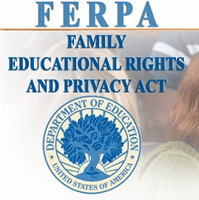Technological advances prompted change in student education records policy

The Family Educational Rights and Privacy Act was passed 40 years ago, and recent changes to the University’s student education records policy address advances in technology since FERPA became law in August 1974.
“Our definition of directory information was similar to that of other colleges and universities across the country,” said Jesh Humphrey, deputy general counsel with the Office of Legal Affairs. “However, a couple of months ago, the chancellor asked the Office of Legal Affairs and the Registrar’s Office to review our policy to better protect our students’ privacy.”
Student email addresses, as well as photographs, videos or other media containing a student’s image or likeness, have been designated under the revised policy as “limited use directory information.”
According to Humphrey, this designation doesn’t impact the ability of faculty or staff to use these types of information for educational purposes.
“We have a number of social media accounts and methods to reach the campus and external partners and often introduce our students and their accomplishments through University websites,” Humphrey said. “’Limited use directory information’ is defined not only by the type of information that is used but how it is used. Images and email addresses can be used for official University purposes, including our internal email directory, our social media accounts and our websites. No longer, however, will we make email addresses or images of students available to anyone who asks for them with a public records request.”
As commercial entities realized certain student information was public, UNC Charlotte experienced a huge proliferation of them spamming our students via email addresses obtained through public information requests, explained Humphrey. He noted technology made it easier to provide such directory information to businesses. For the majority of time since FERPA’s adoption, organizations obtained such information via computer printouts that required commercial enterprises to rekey the data manually.
Several years ago, the University modified its online directory to cease displaying home addresses and telephone numbers to better protect students.
“We’re the only UNC system school to limit directory information to this level, which makes us a pioneer in protecting student information that can be requested,” Humphrey said.
Faculty and staff members continue to be individual gatekeepers of student information, and the University does provide training to employees, graduate/resident assistants and other campus workers about FERPA, stated Humphrey.
“We rely on employees to maintain the privacy of student information, and even when such information is communicated for legitimate educational interests, our faculty and staff members should explain to the person who receives the information to handle it confidentially,” Humphrey stated. “The (policy) changes will not impede University operations, but we do want to ensure our use adheres to the law.”